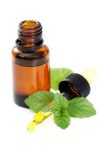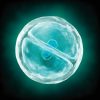ACS News Service Weekly PressPac: July 08, 2015
ACS News Service Weekly PressPac: July 8, 2015
- General Inquiries: Michael Bernstein, 202-872-6042
- Science Inquiries: Katie Cottingham, Ph.D., 301-775-8455
News Items in This Edition
Peppermint oil and cinnamon could help treat and heal chronic wounds
Infectious colonies of bacteria called biofilms that develop on chronic wounds and medical devices can cause serious health problems and are tough to treat. But now scientists have found a way to package antimicrobial compounds from...

Examining the neonicotinoid threat to honey bees
The decline of honey bees has been a major concern globally for the past decade. One of the factors that could be contributing to the decline is the use of insecticides — specifically neonicotinoids — that persist in rivers and streams...

Keeping the smells of onions, garlic and other stinky foods under wraps
Some of the world’s most popular foods and seasonings can also be the smelliest — think garlic, onions, certain cheeses and the notoriously stinky Asian durian fruit. No amount of plastic wrap seems to contain their stench, but now...

Novel battery uses light to produce power (video)
To move the world toward sustainability, scientists are continuing to explore and improve ways to tap the vast power of sunlight to make fuels and generate electricity. Now they have come up with a brand-new way to use light — solar...

Chemical & Engineering News celebrates ‘The Talented 12’: Young science trailblazers
A microbiome code breaker. A carbon dioxide (CO2) wrangler. A bug battler. These aren’t members of a new group of super heroes, but a sampling of “The Talented 12” young scientists and entrepreneurs that Chemical & Engineering News...

Journalists’ Resources
ACS Experts: Chemistry Sources for Reporters
On a deadline? Need a reliable explanation of a chemistry concept? Then you need an ACS Expert. We have a growing list of scientists who can comment about neuroscience, green chemistry, pharmaceutical science, policy issues and much more. Just contact us at newsroom@acs.org.
ACS Editors' Choice
Do you want to keep up with the frontiers of science? Check out our new Open Access service, ACS Editors’ Choice. The website features one top story every day, selected from ACS’ more than 40 peer-reviewed journals, to give the public free, direct access to some of the most relevant scientific research going on today.

ACS National Meeting News
Couldn't go to the ACS 249th National Meeting & Exposition in Denver? Then check out our resources for info you might have missed:
Press releases: www.eurekalert.org/acsmeet.php
Press conferences: www.ustream.tv/channel/acslive
ACS Webinars®
The Chemistry of Fireworks and Pyrotechnics
ACS Webinars will not be having a broadcast on Thursday, July 2nd, but that doesn’t mean you can’t enjoy your weekly dose of chemistry with these fireworks presentations just in time for the Fourth! Impress your friends with your pyrotechnic chemistry knowledge, presented by Chris Mocella, co-author of The Chemsitry of Pyrotechnics. Watch the webinars here: The Chemistry of Fireworks and Advanced Pyrotechnics: Flash, Sound, and Smoke.
Recordings of previous ACS Webinars® are available as a benefit to current ACS members. Live weekly ACS Webinars® continue to be available to the general public.
Toolkits on Global Challenges/Research Funding
Journalists covering some of the great global challenges of the 21st century and federal funding of research and development (R&D) can find videos and scores of other resources in websites that the American Chemical Society has prepared on those topics.
ACS Press Release Archive
Visit our press release archive for news on a variety of chemistry-related topics.
ACS Videos
The American Chemical Society encourages news organizations, museums, educational organizations and other websites to embed links to these videos.
ACS Video of the Month
Connecting that Salty Sea Smell and Climate Change
There’s nothing like the smell of salty sea air over summer vacation. But instead of frolicking on the beach, a group of chemists is researching the compounds inside that air. Sea spray aerosols (SSAs) are created with every breaking wave. Kimberly Prather, Ph.D., Timothy Bertram and their teams have discovered in research published in ACS Central Science that SSAs have a huge impact on the planet’s climate. Watch this video for Prather's explanation.
Check out more Reactions videos and subscribe to the series at http://youtube.com/ACSReactions and follow Reactions on Twitter @ACSReactions.
C&EN Video Spotlight
Keeping Cool without Killing the Planet
Refrigeration is a staple of modern living—we use refrigerants in air conditioners, aerosol spray cans, and, well, refrigerators. But it turns out that the most popular refrigerants of the 20th century depleted the ozone and had high global warming potentials. In this Speaking of Chemistry episode, Sophia Cai takes a look at the pros and cons of recently approved alternatives.
Related Links
ACS Podcasts
Science Elements
Science Elements is a podcast that makes cutting-edge scientific discoveries from ACS journals available to a broader public audience. Listen to the podcasts at www.acs.org/ScienceElements.

This is the latest American Chemical Society (ACS) Office of Public Affairs Weekly PressPac with news from ACS’ more than 40 peer-reviewed journals and Chemical & Engineering News.
This information is intended for your personal use in news gathering and reporting and should not be distributed to others. Anyone using advance ACS Office of Public Affairs Weekly PressPac information for stocks or securities dealing may be guilty of insider trading under the federal Securities Exchange Act of 1934.
Please cite the individual journal, or the American Chemical Society, as the source of this information.
The American Chemical Society is a nonprofit organization chartered by the U.S. Congress. With more than 158,000 members, ACS is the world’s largest scientific society and a global leader in providing access to chemistry-related research through its multiple databases, peer-reviewed journals and scientific conferences. Its main offices are in Washington, D.C., and Columbus, Ohio.

